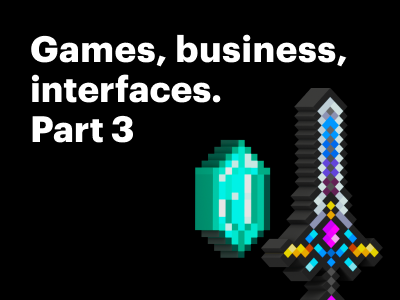10 January 2019
JetStyle: An interview with Aleksey Kulakov about our partner project Ridero
We often mention JetStyle’s partner project Ridero in our blog posts here. In order for you to have a more specific idea of what it is and what’s so interesting about it, we decided to share an interview with our CEO and product director at Ridero Aleksey Kulakov, which was published on vc.ru in November 2017. Have a read!

“The turnover of Ridero is already higher than that of my digital agency JetStyle”
An interview with a co-founder and product director of the publishing service Ridero Aleksey Kulakov — about Ridero's plans for the international market, how digital self-publishing services are changing the publishing industry, what eBooks are going to be like in the future and what is the most important thing in a modern digital product.
About the guest – Aleksey Kulakov
- Born in 1975 in Yekaterinburg.
- Studied at the Ural State Academy of Architecture and Arts.
- In 2000–2004, the head of OverSite web studio.
- In 2004, founded JetStyle digital agency with partners.
- In 2005–2006, director of Internet projects at ABAK-Press.
- In 2013, became a co-founder of Ridero publishing service.
Ridero translates from Italian as "I will laugh." Is this some kind of a subtle irony over the “graphomaniacs” that come to you?
In no way! We are always on the authors’ side and would never laugh at them. When Alexander Kasyanenko, the first founder of Ridero, came to me, he already had this name. He explained its meaning to me as: “When an author gets a book, he or she is ecstatic and ready to laugh”. We often encountered such a reaction: the authors did not expect that the publication of the book could be free and so simple.
What does the process look like? How is this simplicity achieved?
An author comes to us with the text, for example, in a Word format. Uploads it into service. Our layout designer robot prepares a book for publication in paper and electronic formats in just 20 seconds. The eBook is listed – free of charge for the author – on Amazon, Google Play, Bookmate, Litres and at the Litres partners. A paper book is published on the “print-on-demand” principle: when the reader visits the site and orders the book, we will print a copy for them. Under this scheme, sales are carried out in Ridero’s own online store and on Ozon.
Sometimes the author has to dig a little in the online editor, sometimes, especially if this is an elderly person, they need our personal assistants. In the process, they may also need additional services. For example, proofreading. Or if our cover templates are not enough for them, they can order an illustration from our designer. We charge for these extra services.
Before we appeared, the authors had two options. Either, provided that you are an accomplished writer, a publishing house comes to you, pays you a fee, publishes a book at its own expense and promotes it itself (this niche is rapidly declining). Or the publisher deals with you at your expense for many months and tens of thousands of rubles. We created the third option.
With all due respect to Ridero, I don’t think this idea is worth a billion. It is easy to consider it a boutique project, entertainment for a digital studio.
On the contrary, the turnover of Ridero is already higher than that of the JetStyle. And JetStyle is a large studio with over a hundred employees.
So you reached the level of hundreds of millions of rubles a year?
I think so. In 2017 there will be more than 100 million rubles turnover. But the main thing is not the money – our ambitions are global. I got involved in this story because I want to make the best service in the world that helps the author interact with the reader.
In your opinion, are you able to compete with such good service as Amazon, an international monopolist in e-commerce, including the sale of books, has?
Of course, Amazon is the “boss of high level” in the industry. There are countries where Amazon has a dominant position, where it is difficult to oppose it, at least now. Although we figured out what to do in the next stage. We still have advantages over Amazon. First of all, Ridero has free and the best in the world, in our opinion, automatic layout. Amazon does the same thing with the help of front-end developers from India, which slows down the processes and increases the cost of publication, but given the size of the corporation, this is not critical for them.
At the same time, Amazon did not win everywhere. The players of the publishing market woke up and saw what was happening with the big publishing houses where it prevailed. There are countries that are trying to keep Amazon out, for example, Germany and Russia.
According to the Fortune business magazine, the volume of self-publishing industry of eBooks in 2016 reached $ 1 billion – “Runetology”.
How do you estimate the potential capacity of your market in Russia?
Nobody counted those who publish books on their own in Russia. In its analytics, Amazon indicates that the authors make 1% of the total population. According to this statement, it turns out that our potential market is about one and a half million people.
In February 2016, Vedomosti estimated the Russian book publishing market for short-run and specialized books at 1 billion rubles. To what extent does this figure correspond to your views on the volume of the digital self-publishing niche?
I avoid expert statements about what I’m not sure about. I believe Russian self-publishing market will grow multiply. Let’s suppose the estimate was correct. So, at the moment, the size of the market is one and a half to two billion rubles. In two years, our market is likely to double. But it's all at random. The market is still waiting for its researchers.
From your point of view, what’s the correct way to call the market you are playing in? Is it self-publishing?
At the moment – yes. Self-publishing is a process that changes the publishing market. How far will it go, what forms will it turn into? None of us can predict. Maybe it will be still be called self-publishing.
To what extent will self-publishing push aside traditional publishers? At the moment, the ratio is not in its favour. A billion dollars in self-publishing against tens or hundreds of billions in traditional book publishing.
That’s right. I will now make two consecutive statements, they will contradict each other in some way.
On the one hand, it will push them aside pretty much. And here's why: in the USA, eight out of ten authors, whose works have become bestsellers and who earn more than a million dollars, publish their books on self-publishing services. This is a disaster for the publishing market. It turns out that in order to achieve success, you don’t need to go to a publishing house, at least, not in the US.
And what do you need – just to be talented and that’s all?
No. You need to be talented, but not only in writing texts, in communication with your reader as well.
The success scenario today is an avalanche scenario. You have to roll a large snowball of the first readers so that this huge thing will start involving more and more people by word of mouth. First, you need to roll the snowball by hands, as in many other businesses. This is the task of the author themselves. In fact, they should be able to build a community around their book. That’s how it was with the majority of the bestsellers. Moreover, for some, it was a result of a conscious approach, as in the case of the “Metro 2033” series.
If a book has received the first few thousand sales in a few months, this is a 100% marker that it will sell well and it makes sense to put marketing effort into it. You will soon get contacted by a publisher, if not a couple of them.
And what will they offer?
To get published the traditional way. This happened to many of our authors and we are very pleased with: it means that we served as a springboard for them. This is one of the benefits that authors get from us.
We also benefit publishers. After all, a modern publisher has a terrifying task. Very similar to the venture, but worse. They invest money in a book, while the prize is smaller and very rare, and the feedback is not as fast and transparent. Moreover, an ordinary editor is afraid to invest in unconventional books. Although, it is clear that the bestseller can only be unconventional. But if you invest in an unconventional one, the chances of failure increase. The Holy Grail of the publishing industry is to find a way to predict the bestseller.
We are digging this way too, and we have a huge advantage here in Russia: the largest mass of authors pass through us. If we take steps with respect to consumption analytics and reading, we can more relevantly than others predict the emergence of such a bestseller.
This is similar to what blockchain will do with the banking sector. As romantics dream, blockchain will replace the banking sector, while more experienced businessmen say that, most likely, banks will still figure out how to change and lead a revolution using this technology. I guess the same will happen to the book market. There is a new social technology – self-publishing and major market players will learn how to interact with it.
Services now take on the tasks of prepress and distribution, before it was the prerogative of publishers. The functions of the investor and editor – financial and humanitarian, will remain in the publisher’s area of responsibility.
Producing.
Yes. I hope this will lead to the fact that literary agents as a class will appear in Russia.
Let's describe the portrait of your client, the author. What are their average lifetime and average check?
We don’t know yet for sure the client’s lifetime: the audience is very loyal, and many of the authors who started working with us three years ago are still with us. In addition, the author has a long period of hibernation – the "I am writing a book” mode. They interact with us but don’t buy anything, not because they left, but because they are writing a book. I think the average user lifetime is a year and a half. And the average check now is € 60. But it is growing. The model we use is freemium, so it is relatively small.
How many books does the author publish on average?
As far as I remember, two and a half.
The average volume of the book?
About 150 pages.
More than 100 thousand authors are registered on Ridero, over 120 thousand books are uploaded to the system. How many of them are good?
It’s actually 160 thousand books and 140 thousand authors already. As for the “good” books – we believe that no one, except the readers, has the right to make such a verdict.
The achievements that you are most proud of?
We finally got an author who earned more than one million rubles in less than a year and sold 30 thousand copies of their books. We thought it would happen no earlier than 2018.
We are proud of the fact that we put more titles on the shelves than any other publisher: in 2016 - 10 600 books, two and a half times more than in 2015, and more than, for example, AST publishing house.
Do you believe that platforms like yours will allow independent authors to earn enough to make a decent living by self-publishing only?
Not to all of them. We are a classic “long tail” startup: only a small number of authors gets a really high income.
In general, the circulation of books is getting down everywhere in the world. So if you want to earn as a writer, you have to write more books. This is quite realistic, but in order to start making money, you need to build your readership, be in dialogue with them and be a representative of your book in real life. Or you might just be the lucky one, but this doesn’t happen often.
I rarely give compliments, but I, as a person who deals with digital products, was impressed by how you organised a user journey, the interaction with the service. Is it because of the great experience of the agency work?
It is, but when you find yourself on the other side of the barricades, you realise a lot of new things. I would advise every director of the agency to take the side of the client every few years and work from the product’s side.
Sometimes, when a client comes to you, you offer them to adopt the latest technology and hottest trends. But they are not ready. You think: "Well, here you go again”. But when you recommend all this to yourself, you answer clearly: “It is reasonable, it will pay off, we will do it” or “No, this is just marketing hype, it will never pay off, we won’t do it”. And you learn much faster.
What is the difference between a digital product manager at an agency that parts its ways with projects after they’ve been delivered and a product director inside the “product” company?
Our whole digital environment uses the term performance marketing. People who are engaged in projects themselves, prefer to talk about unit economics. This is a much more complex concept.
Everything that you do as a product director in your client’s economics should, if not pay off quickly enough, then, at least, show that it can pay off. "Pay off", however, is a special case. You always have goal metrics, and every step you take is either good or bad – in the sense whether or not it makes you move forward.
In general, the client takes the problem of the correct path off the project manager's hands. He or she holds the frame of the project, this is their area of responsibility. You are here as a soldier: you have been told that you need to occupy the territory, and you go and occupy it. And whether it was necessary from the point of view of the whole operation, is not your problem.
And even if we, as a digital agency, are trying to behave as we would if we were a business owner, there is still a demarcation line between us. There is a lot of stuff that we are not entitled to decide for the client. And it is very convenient.
In “The Art of War” by Sun Tzu there is a term “death ground” (“When rushing quickly into the battle you survive, and not rushing quickly into the battle – die, it will be the death ground” - vc.ru). Any project business has an easy way not to fall into it. When you start a product business, you are in it by default. You didn't succeed – you killed yourself.
Do you have a clear idea of what the digital product is today? The boundaries of the profession are still not settled, there is confusion outside of the top Runet companies.
I call the product a packaged and scalable process of creating customer benefit. When we create customer benefits in a given form regularly and manageable.
And everything depends on the translation of benefit on the language of interface?
Not necessarily. By the way, when you start to deal with a product, you stop thinking that you are an IT specialist. The product designer creates the process. Yes, a part of the process takes place in the interfaces, because we have a technological business.
However, there are such parts of the product in Ridero as technical support, moderation, customer service. We have one continuous scenario for the user: from the moment they decided they need readers, to the moment when they received the readers. Going through “Yandex” search results, our interfaces, emails, conversations with our managers, waiting for printed copies, receiving a parcel from our delivery agent – this is all a single product. And the fact that we do it in different environments, is our problem.
And it is not even clear where the border with business development is here.
Of course. In fact, in our case, business development is someone who goes and signs contracts with partners.
Many digital agencies are trying to make their own startup sooner or later. But not everyone succeeds. Do you have a recipe for success?
My main recipe is to have a reinforced concrete wall between the agency and the startup. For the most of my ideas that ended in nothing, this happened not because they didn't have a market or we couldn't sell them, but because quick, clear money always wins long and incomprehensible one.
A programmer is sitting and working on an idea. And managers are walking around: “Alex, I brought real money from the market. Take the money and give me the programmer”. And sooner or later you give him away. And when a partner from the outside comes to you and the new business differs from the old one in the ownership structure, you stop allowing yourself to do that. These are now different pockets, you have no moral right to take the resource of one company for the success of another.
I also follow the rule: if you don’t have a director for a new business, don’t start a new business. Although, it didn’t occur to me soon enough that you cannot hire a director: it is the director who hires you, and not you who hires the director for a startup. A startup needs an entrepreneur, not a regular manager. Hiring an entrepreneur to work on your idea is unreal. This was a problem for me: in order for me to become a director, I need to believe in a new venture so strongly that I will be ready to leave my current favourite business. At least, for half the time, the more – the better.
And all sorts of obvious things from Lean Startup, which everyone knows. Work with the real problem of people, don’t fall in love with your feature. Understand that you are organising a process, not creating an artefact. The main truth of any automation: no need to automate a non-existent process; first create a process, then automate it.
And a very important thing: if you are going to make a technology startup and you don’t have a team lead – a playing trainer for programmers – better don’t do it at all. When Alexander Kasyanenko came to me, he had a team lead, but then he disappeared. And then our adventures began: we tried to make a team lead from what we had. Then I took him from another business. Eventually, from art director I turned into a product director – I began to manage not only designers but also programmers and many others.
And a traditional question: what is your image of victory – to become the main self-publishing publishing house in the world?
Slightly different. As I see it, people in our time write books, because they really need to get some meaning in their lives. To become popular and necessary. And that demand is created through dialogue with the reader. The dialogue arises between the reader and the author. And we want our authors to be able to easily establish the dialogue at all stages of the book’s life. In 2018 we will have the following motto: “We will bring you readers before you even finish the book”. Can’t tell you yet how we are going to do that.
The author is interested in the response emotion. Do you know what an aspiring writer does when giving you a book? He or she stands behind you and begins to watch as you read it. It is very important for them that you not only admire it but also say something in response. They look for more complex feedback.
As for the future of the book itself, it will inevitably become more interactive.
Do you mean something like a modern genre of a "book in the messenger"?
Close, but not quite that. After offline, the book learned to live in two ecosystems – in search and in social media. But not in a messenger yet. TapTapTap and other similar services that show books in the form of dialogues are early attempts to understand how a book can exist in the messenger at all.
There is a British startup Crave, working in a niche of love prose. They have a completely awesome thing: inserts in the book as screencasts of the characters’ dialogue in the messenger. You read it on the phone, and suddenly, right on your screen, the characters start to chat. The presence effect is incredible.
I think there will be new genres at the intersection of chats and traditional drama. It is also important that the “author – viewer”, “author-reader” boundary is blurred, intermediate roles arise between them. In my opinion, this is the way of development of media, including books.
Something similar is happening with the video. In particular, YouTube has brought up a whole generation of people who know how to make educational and media content from the age of six or so.
Is the book as a "form factor" – a large amount of text, especially printed on paper, losing its vitality?
It is hard to say. The US book market is seven years ahead of us. The share of electronic books there stopped somewhere near the 25% mark, and there was even a decline because of a young audience, which no one could expect.
As for format changes, the size of the book, of course, has greatly decreased. We are ready to consider a book a much smaller volume than a hundred years ago. And it is precisely such works that have the largest sales in electronic form. Our sales leaders are authors who publish many small books. Well, the segment of those [readers] who are ready to immerse themselves in the “flow of the book” for a long time will most likely decrease.
There is such a term as immersiveness. How much media grabs your attention. For a long time, the most immersive experience you could get was immersion in a good book. With the arrival of computer games, books have lost their leadership. But overall, they are still capable of it. And I think they will evolve in the direction of greater immersiveness, and therefore, as I said, they will become more interactive.
It seems to me that the experience of interacting with a book in seven years will be like this. You open, say, the nineteenth "Harry Potter", read about Draco Malfoy, already old man, and he asks you: "Maxim, what should I do with Hermione?”. And you tell him: "Well, she is stupid...". And he goes: "Well, okay then”. This is also a linear narrative, but then Draco Malfoy says: "By the way, Maxim told me that Hermione is stupid”. Then you go to your Facebook, and the character Hermione sends you a message: “Maxim, how dare you?!”
Books will create a place within themselves for the reader’s response so that he or she plunges deeper into them. And they will break the “fourth wall”.
You might also like



